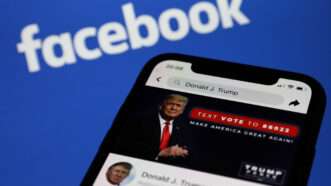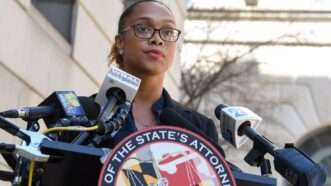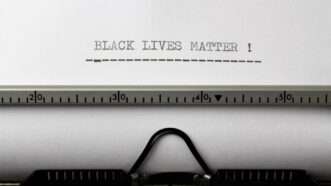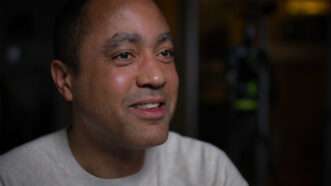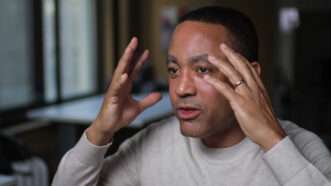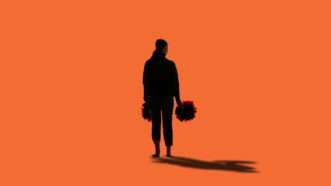Free Speech
Risky Pleading in Sex-Related Libel Cases
If plaintiff broadly claims that defendant libeled her by "imputing unchastity," she risks having to disclose a lot about her sexual history.
Another "Racial Ridicule" Arrest in Connecticut, This One for an Online Insult
But the "racial ridicule" statute under which this is happening (1) by its terms doesn't cover such speech, and (2) if it did, it would be unconstitutional.
No Preliminary Injunctions Against Libel, Magistrate Judge Reaffirms
And claims of veiled threats don't change that.
More on the New Taboo: Accurately Quoting Source Documents in University Classrooms
Rutgers Law School, the National Coalition on Censorship, and the Washington Post.
My New "Dissenting Opinions" Podcast
some heterodox views about Supreme Court opinions, and more
Wash. Court Reverses Order Banning "Defamatory and Harassing" Posts About Judge and Court Employees
It's an unconstitutional prior restraint, the court holds.
"How Often Do You Think People Make False Accusations" Related to Sexual Misconduct, Discrimination, or Retaliation?
"All the times," "sometimes," or "rarely"? A prominent public university's training module requires faculty to give a particular answer.
John Samples: Facebook's Oversight Board Was Right To Uphold Trump Ban
A member of the board (and a Cato Institute vice president) defends the controversial decision to kick the former president off the social media platform.
Baltimore's Top Prosecutor Attempts To Send FCC Against Local Fox Affiliate
Don’t call yourself a supporter of the First Amendment while attempting to punish a media outlet for criticizing you.
Texas Lawmakers Push a Likely Unconstitutional Ban on Plant-Based Food Producers Labeling Their Products 'Meat,' 'Beef,' 'Pork'
Producers of plant-based meats argue these restrictions violate the First Amendment.
Bust a Deal, Face the Wheel, Here for Colleges and Settlements for Lawsuits Over Expulsions
A student was expelled by St. John Fisher College for alleged sexual misconduct, but was then acquitted at a criminal trial and sued the college; the college agreed to confidentiality to settle the case, but then allegedly breached the agreement.
Recent Developments in Controversies About Quoting Slurs from Court Cases
A CNN story on the Rutgers law school controversy; the settlement agreement in the firing of Central Michigan University professor Tim Boudreau; and the views of Prof. Nadine Strossen, former President of the ACLU.
"When an Individual Brings a Claim with Respect to Which Her Disabilities Are Central,"
“the public has a substantial interest in knowing about those disabilities so it can meaningfully oversee the Court’s exercise of its judicial power.”
Baltimore Prosecutor Asking FCC to Investigate TV Station for Criticizing Her
The elected prosecutor (Baltimore State’s Attorney Marilyn Mosby) is claiming that the station's coverage of her is "blatantly slanted, dishonest, misleading, racist, and extremely dangerous."
We Reply to Anonymous Above The Law Columnist's Response to Our "The New Taboo: Quoting Epithets in the Classroom and Beyond"
Above the Law refused to publish our reply, so we're publishing it here.
N.Y. Court Pressuring Mother to Remove Rock with Small Painted Confederate Flag
"Given that the child is of mixed race, it would seem apparent that the presence of the flag is not in the child's best interests, as the mother must encourage and teach the child to embrace her mixed race identity, rather than thrust her into a world that only makes sense through the tortured lens of cognitive dissonance."
Whose Rules Should Govern How Americans Speak with Other Americans?
(1) American law? (2) Rules set by a large corporation? (3) International law?
John McWhorter: 'The Idea That America Is All About Despising Black People? That's Fantasy.'
The Columbia linguist discusses his new book Nine Nasty Words and dismisses the ideological excesses of the 'anti-racism' movement.
College Soccer Player Suing Coach Who Benched Her After She Refused to Kneel During Protest
Punishing players for kneeling, or not kneeling, is a First Amendment violation at public universities.
John McWhorter on Cursing, Anti-Racism, and Why 'We Need to Stop Being So Afraid'
Columbia University linguist John McWhorter on "anti-racism" as a new, misguided civic religion and his new book on curses, Nine Nasty Words.
Kevin Spacey Sex Abuse Plaintiff Can't Sue Under Pseudonym
The lawsuit stems from an alleged sexual relationship between the plaintiff and Spacey over 35 years ago, when the plaintiff was 14.
When Fighting 'Misinformation' Is Really Fighting Free Speech
There is no "fake news" exception to the First Amendment.
Prof. John McWhorter (Columbia) on "People Getting Fired for Referring to the N-Word - Activism or Performance Art?"
Today's item in Prof. McWhorter's substack newsletter, "It Bears Mentioning." (I just subscribed, for $60 for the year, though you can also subscribe for $5/month.)
Voters Have Defeated a Texas School District's Plan To Punish Students for Microaggressions
The opposition to Southlake's plan was understandable.
Pharma Co. Seems Ready to Withdraw Request for Preliminary Injunction to Take Down Anesthesiology Journal Articles
The case is Pacira BioSciences v. American Society of Anesthesiologists, a trade libel lawsuit filed over journal articles and other publications questioning the efficacy of Pacira's pain-killer Exparel.
Tennessee Man Arrested for Posting Picture Mocking Dead Police Officer Files First Amendment Lawsuit
Police arrested and charged Joshua Garton with harassment for posting a photoshopped picture of two men urinating on a police officer's grave.
N.Y. Police Officer Sues Protester Over Anti-Asian Insults, Alleged Spitting
Detective Vincent Cheung is suing Terrell Harper.
"Tenured Professor Abruptly Fired After Raising Allegations of Anti-Semitic Speech by Linfield University's President"
"[Daniel] Pollack-Pelzner ... is [also] one of many Linfield faculty members and students who have pushed back against the allegedly poor handling of sexual abuse and [harassment] claims by the administration."
This School Punished a Cheerleader for an Off-Campus Snapchat. Does That Violate the First Amendment?
The Supreme Court weighs the power of school officials to punish students for off-campus speech.
Don't Call CPS on Parents Who Mask Their Kids; Don't Call the FCC on Tucker Carlson
Plus: 15,000 marijuana prosecutions pardoned, the latest sex trafficking urban legend, and more...
"The New Taboo: Quoting Epithets in the Classroom and Beyond" Now Published
The article is co-written by Prof. Randall Kennedy (Harvard), a leading scholar of race and the law, and me.
Marco Rubio Echoes the Chinese Tyrants He Supposedly Hates
If you're going to attack Mark Zuckerberg for cozying up to Xi Jinping, maybe you should try harder not to sound like a Chinese dictator.


